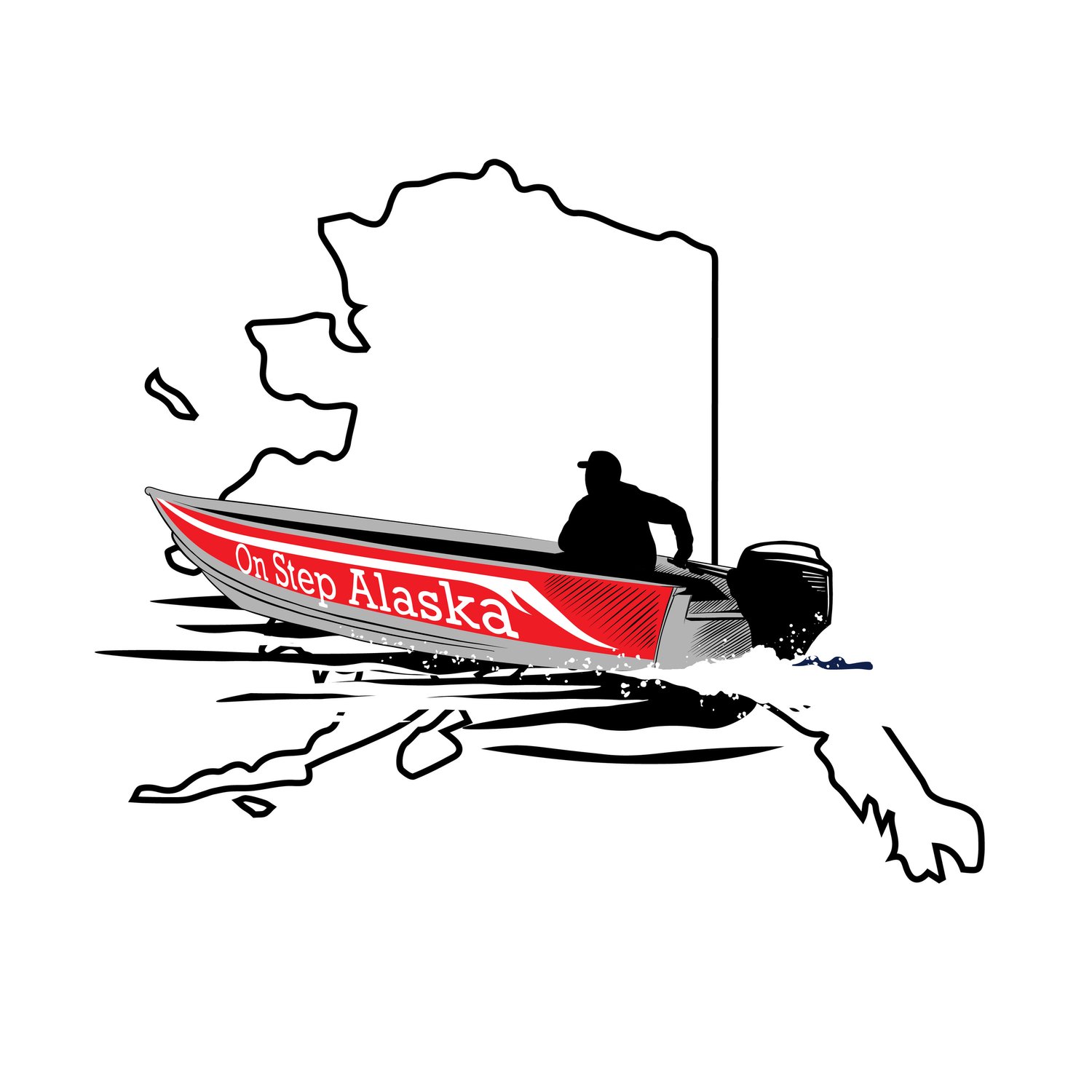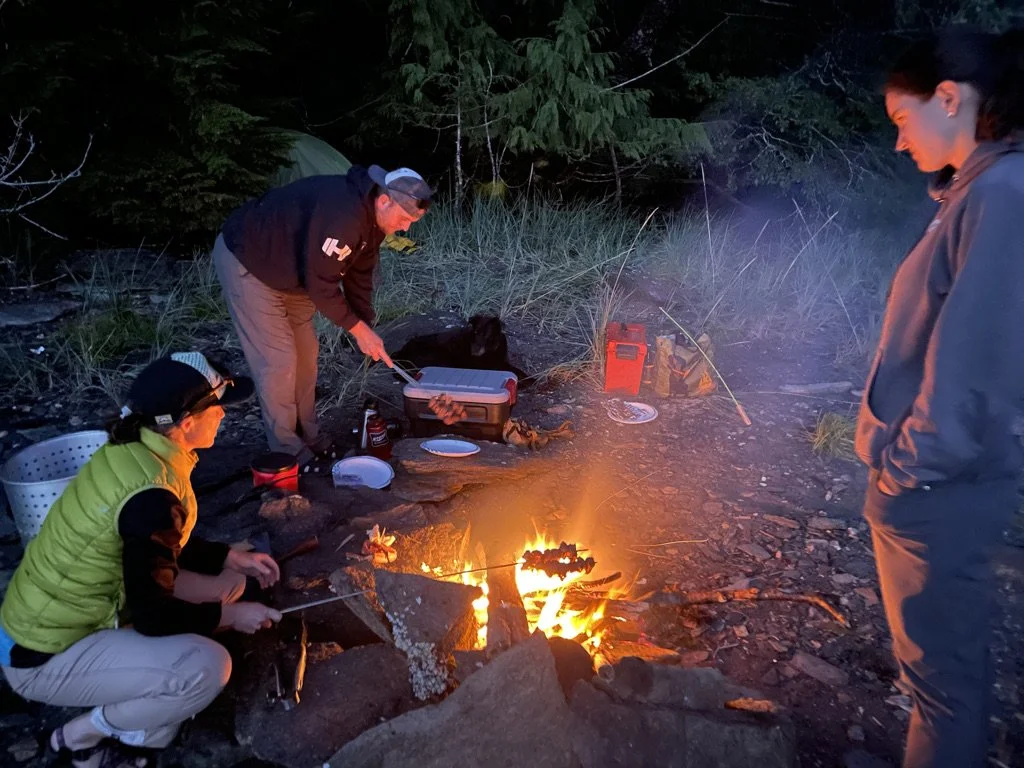What I’ve learned about podcasting
There are lots of people talking about the good life, should you?
Should you start a podcast? Yes. Why not?
Too many people already podcasting, even the outdoor podcast market is oversaturated. So what? Only you can tell your story and all you need for the initial set up is a cell phone with headphones, an app to do basic edits, a host for the podcast and a website that will host the content. Often times the starter subscription is free which is great, because rather than spend hundreds of dollars on gear, logo and a platform to host, you’ll see if you actually like it and can produce good content.
My podcast The Mediocre Alaskan Podcast has a solid base of loyal listeners. While I wouldn’t have invested money into this without hoping for a level of success, I never intended it to enable me to retire early from teaching. Which is good, because it hasn’t. As a freelance outdoors writer and author on the side, I was intrigued by the opportunity to have long-form conversations with interesting people that would support my writing and bring value to listeners.
That’s what I wanted to provide to listeners. An honest look at living in Alaska through the eyes of a teacher who probably fails more than he succeeds. But the self-deprecating only goes so far. Rather than cast myself as a bumbling fool, I value growth and gratitude, which is often what I find in my experiences and write about in my column for the Juneau Empire. If I got into this so that I could get listeners to buy me a truck, well, I’d probably reek of desperation or sound like the fake-expert that turns me off to some podcasts.
I don’t want to have a podcast I wouldn’t download myself.
Realities
Pretending doesn’t work
I set off to talk to people I wanted to talk to, about things I wanted to talk about. During the summers, that happened to be elk and mule deer while my wife (then girlfriend) was working on her PhD at the University of Wyoming. However, I found myself trying to be one of those guys with an elk and mule deer podcast, rather than an Alaskan who is curious about other opportunities. Unless you’re already well-established in the industry, it’s dangerous to plug a podcast into one thing. That one thing will inevitably be out of season and listeners can only take so much of guests talking about how they went out and killed or caught something a few months ago. Worse yet, if I get tired of talking about it, that will come through in my recording and I likely won’t be creating anything worth the listen.
Big names don’t always mean lots of downloads
I was stoked to have Destination Elk’s Corey Jacobsen on my podcast, but when it didn’t end in hundreds of downloads and new followers, I learned something that I already knew. I don’t search around social media trying to collect every podcast that’s had _______ as a guest, so why would anyone else? I appreciate it when people with a lot of followers promote an episode, but the reality is getting a big guest will likely not make the difference in the success of my podcast.
However, having guests with a bigger profile will force you as a podcaster to rise to the occasion which is fun. Name recognition can also increase the chances of someone stumbling across the podcast. This can be a difficult metric to pin down precisely, but people are more likely to search a known name than your hunting buddy, so there is a level of validation that comes with having notable guests. This is especially important if you’ve asked another potential guest and they take a tour through your library to get a feel for your style and see if it is a show with some level of credibility.
The episode with Corey is one of my favorites because of who he is as a person and a guest. In fact, the episode I did with the Destination Elk camera man John Abernathy has more downloads than the episode with Corey.
This is probably thanks to the title “How to film a hunt” which, when posted on my website, was likely better for search terms than “Elk, education and travel with Corey Jacobsen.” “How to film a hunt” is relatable to a larger group than just elk hunters or hunters who know Corey. This is called Search Engine Optimization or SEO, using titles to make it more likely for people to find your content during searches.
But it can’t be all about analytics either. As I said, the episodes with Corey and John are two of my favorites, but aren’t my Top 10 downloads from 2021. That is a reassuring reality – a successful podcast is not about big names, it’s about talking to people you want to talk to, not hoping that your weekly Instagram DMs, emails or other methods of reaching out result in bagging a big-name guest.
One last thing, sometimes big names hijack podcasts, don’t take it seriously, or use it as an hour-long ego stroke. It might be a good idea to listen to a few to ensure your episode will be unique and get an idea for whether or not it would be worth asking in the first place.
Connecting to the audience
Though I have episodes about elk hunting, mule deer hunting and fly fishing in the Lower 48, my Top 10 episodes are all about Alaska. Duh. Podcasts about Alaska are huge. Everyone in the Lower 48 wants to talk about the time they went to Alaska, so people who want to know more about Alaska are going to listen to a podcast that provides that. As long as the content is good. So while I will talk about mule deer, elk, brown trout or entrepreneurship, my market is people who want what other podcasts can’t provide.
Alaska Wild Project isn’t even a year old but they have become widely known by talking to authentic locals in many different areas. Daniel, Brandon and Jack don’t just have a podcast, they have a brand. The website, podcast, video content and merchandise all make up a brand. But I’d bet the reason they have achieved growth has been their merch and complementary strengths on the show, sure, but more so that the brand says something and brings value. People want to be part of a community, and since Alaska Wild Projects sponsors, assists with, or is present at, events, people have become supporters.
A podcast is more than talking and a brand is more than t-shirts and a logo.
The content is worth it, but at what cost?
Putting together a podcast that sounds good costs money. If you don’t care, then don’t podcast. If you do care, then make the quality reflect that. I attempted to get away with the cheapest way possible, but found that it was hurting the product. After a particularly poor sounding episode after an epic caribou hunt, a listener posted a review titled “Great Content, Bad Audio” I bought better equipment the next day.
My Podtrak P4 and Audio-technica headsets were an investment in quality sound. But they are expensive. If I think I am putting out a quality product, then of course my time, effort and expense are worth something. So how do I make up the difference?
Ads – I am not the first podcast with ads, so I shouldn’t worry about people being turned off by them. What they are, when they appear and how many are the considerations.
Exclusive content – I pondered holding back content for paying customers but decided against it. That’s not to say there’s anything wrong with it, but I worried about free content being better than the paid content, or guests feeling they are either premium or ordinary.
Donation - I’ve also kicked around a Patreon account to support the podcast, but decided to stick with ads. If people do want to contribute more they can buy my book.
Consistency rules
Get to 100 on a schedule that was manageable. That was the goal knowing my first episodes were going to be rough. Just get to 100.
My first episodes were clunky and weird and I sounded like I was trying to be an influencer, but I settled into my own skin and started rolling. One per week was the goal knowing over the long haul I’d get better. My buddy Danny, a former teaching colleague turned co-founder of the weightlifting and coffee drinking lifestyle brand Caffeine and Kilos recommended I start a podcast. He said episode 100 would be better than my first, but I had to get there.
I kept a one per week pace until around episode 200, but I felt there was too much to talk about this last summer and fall, so I published two episodes per week so that listeners would have a better idea of time and I wasn’t recapping something from weeks or months ago. That lasted until the end of deer hunting season, now I’m back to a Tuesday release schedule.
Beware the BS session
Just a couple of buddies talking about hunting can turn into an hour of inside jokes and alienate the listener. There has to be value. Tundra Talk is mostly Tyler Freel and his buddies telling stories, but there is so much to be gleaned from the story. It’s not a long, nuggetless bore that dares listeners to stick around as the beers flow.
Listening to how potential guests are on other podcasts has been critical in deciding who to invite and what to ask. Some guests are great story tellers or insightful entrepreneurs and you don’t want to ruin their momentum, so you let them run. But some make short stories painfully long, don’t seem to have a point and don’t seem to ever take a breath so you can right the ship. “You had to be there” is death to an episode.


